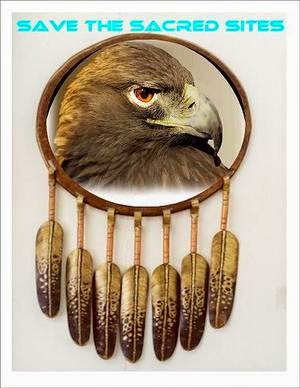Southampton considering new graveyard protection laws
Nov 6, 09
http://www.27east.com/story_detail.cfm?id=243780&town=Southampton&n=Southampton%20considering%20new%20graveyard%20protection%20laws
Unmarked graves and sacred sites will receive new protections under legislation currently moving through Southampton Town government.
The so-called "Native American and Colonial Burial Site Protection Law" would establish a three-person committee to review discoveries of burial sites, human remains and funeral artifacts. The committee would also determine the heritage of the human remains—either American Indian or European—and decide what to do with the remains.
Also, companion legislation to amend town law would require an archeological investigation at sites slated for development and believed to be likely burial grounds.
Both pieces of draft legislation were reviewed for the first time by the Town Board at a meeting on Friday, October 23.
Since 2005, members of the Shinnecock Indian Nation have petitioned the town for greater protection of their ancestral burial sites.
Shinnecock Archeological Advisory Committee member Rebecca Genia said the new laws would protect "90 percent" of sacred Shinnecock lands threatened by development in Southampton Town. The laws, she said, are long overdue.
"I don't mean to be sarcastic, but it really wears on your nerves when you know your ancestors's graves are sited for development," Ms. Genia said. "Enough is enough."
The main responsibility of the committee would be to determine what to do with remains or funeral artifacts once they are found, Assistant Town Attorney Joseph Burke said. Choices include leaving the remains at the site or removing and reburying the remains on a different property.
"Right now, the way it's drafted, the committee would make those decisions," Mr. Burke said. "The main issue is the disposition."
The committee will likely be comprised of a representative of the Shinnecock Indian Nation, the Landmark Board Advisory Committee and a resident of Southampton Town with background in archeology, Mr. Burke said.
According to the proposals, if remains or burial artifacts are discovered, the owner of the property will be required to notify the committee of the discovery. Property owners who do not notify the committee of discovery of human remains or burial artifacts will face fines up to $5,000 and jail time.
Incorporated villages are exempt from the new law.
"Upon discovery, all construction would have to stop," Mr. Burke said. "Any proposed development [at known burial sites] would have to have a complete archeological examination."
Mr. Burke said the town and the Shinnecock Nation have worked together in drafting the new legislation. Ms. Genia hopes the legislation will be approved in spring 2010.
"[The Shinnecock] were favorable that the town was moving forward to enact something like this," Mr. Burke said. "I think they feel like something on the local level is important and I think the Town Board feels the same way."
Mr. Burke said the draft legislation will be brought before the Town Board for another review next month. Before deciding whether to enact the legislation, the board must hold a public hearing.
The Shinnecock have seen numerous sacred lands destroyed by development. Grave sites were being desecrated as early as the construction of the Shinnecock Hills Golf Club in 1891, Ms. Genia said. Later, in the 1970s, a home was built over grounds where the Shinnecock buried their chiefs.
"There were no laws to protect [sacred lands]," Ms. Genia said. "There were no avenues to protect that sacred site. It was considered unmarked burials and private property."
She added, "It still hurts to this day."
In a recent instance, developers unearthed a 2,000-year-old skull of a Shinnecock boy in Water Mill. Southampton Town agreed to purchase the property as open space, and Ms. Genia said the tribe is planning to rebury the skull at the property in the coming months.
Ms. Genia said the new law will protect "what's left" of the open space in Shinnecock Hills, and other areas throughout the town where numerous unmarked graves still exist.
After the local law is enacted, Ms. Genia said the tribe will focus on getting a state law enacted to protect unmarked graves and sacred sites. Currently under consideration by the State Senate committee on corporations, authorities and commissions, the "Unmarked Burial Site Protection Act" would regulate the discovery of burial grounds, human remains and funeral artifacts.
The state legislation has been under review since it was first introduced in 2005, Ms. Genia said. Forty-eight states excluding New York, New Jersey, Vermont and Wyoming have laws to protect unmarked graves and sacred sites, she said.
"We're hoping with this local law passed, we could go to New York State and say, `Look, you need to do this,'" Ms. Genia said.
Subscribe to:
Post Comments (Atom)






No comments:
Post a Comment
Note: Only a member of this blog may post a comment.